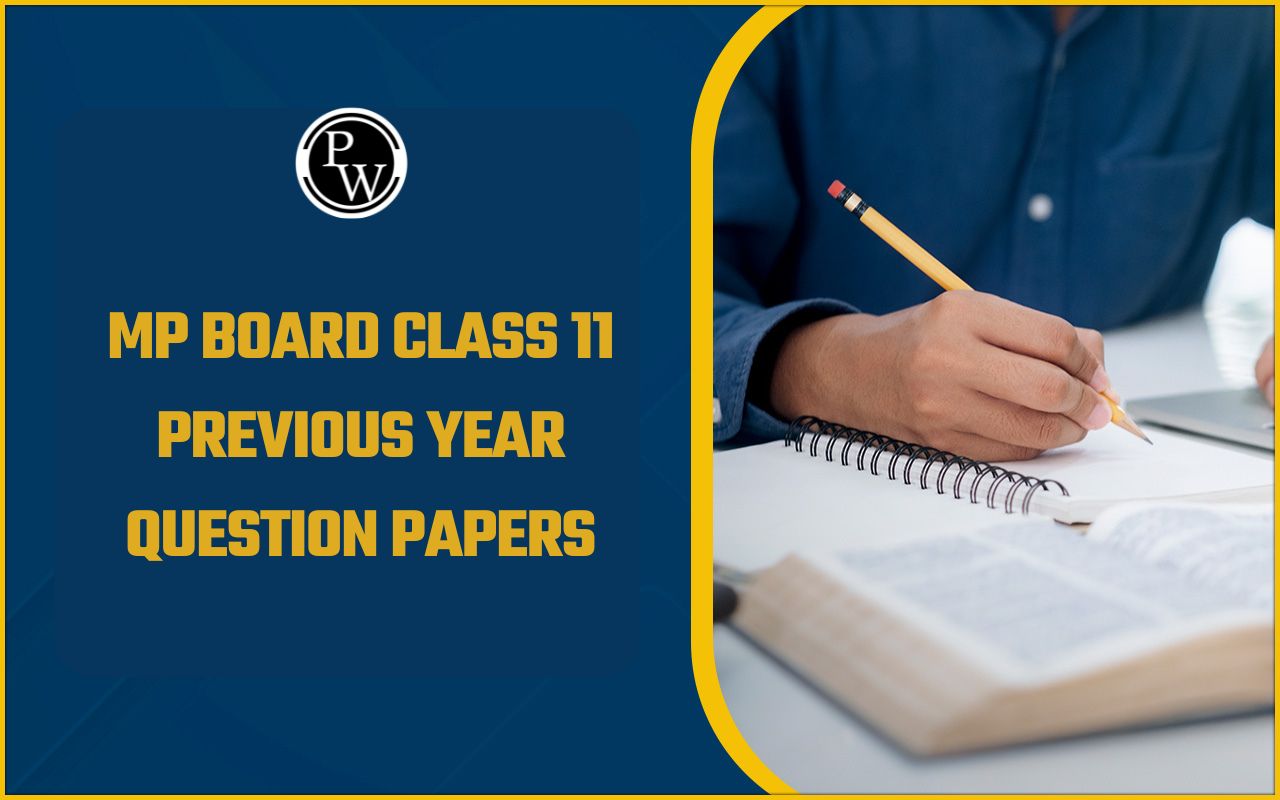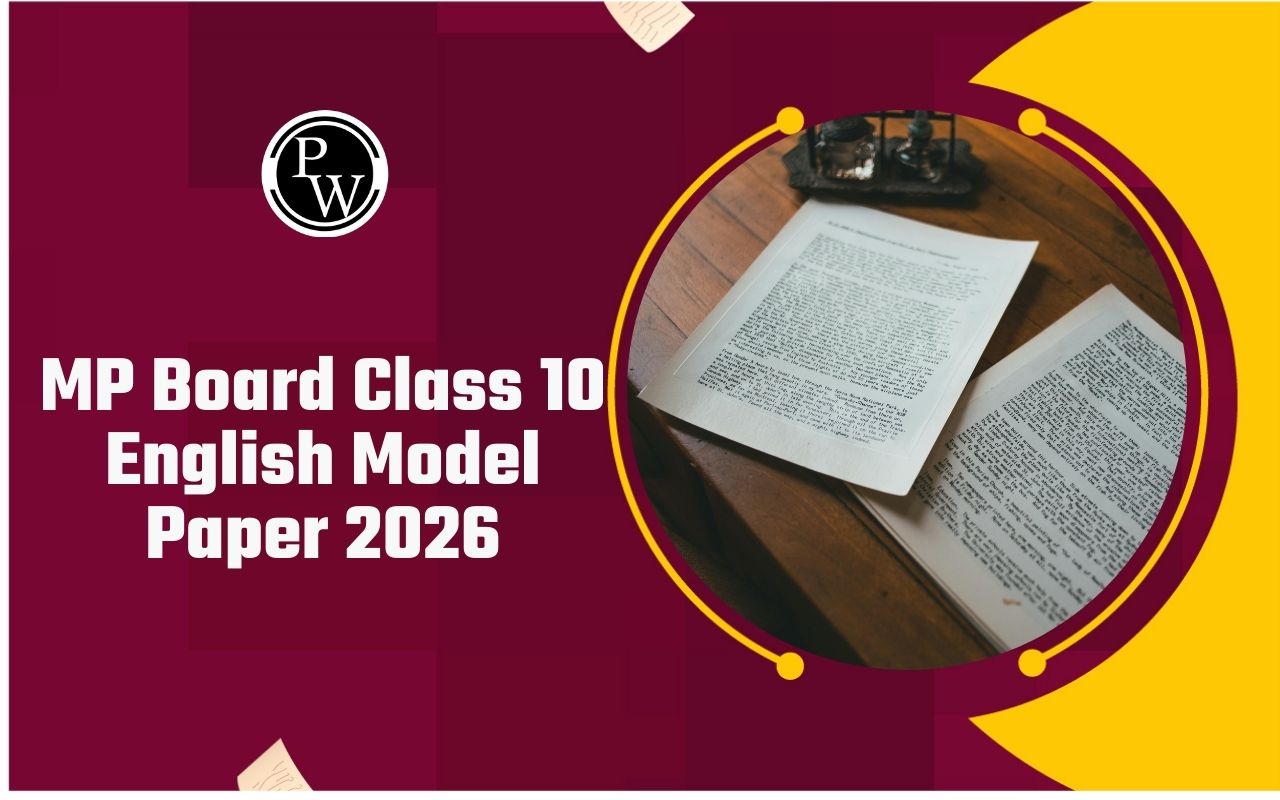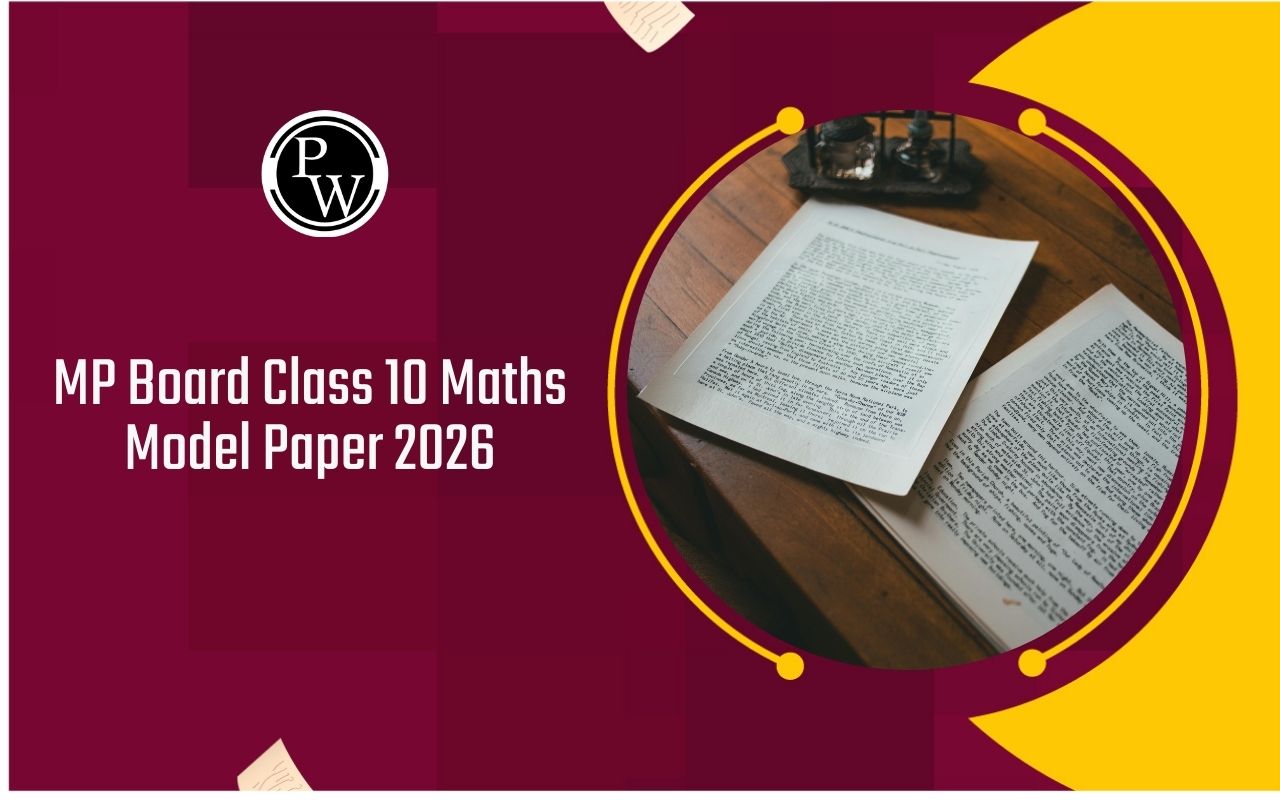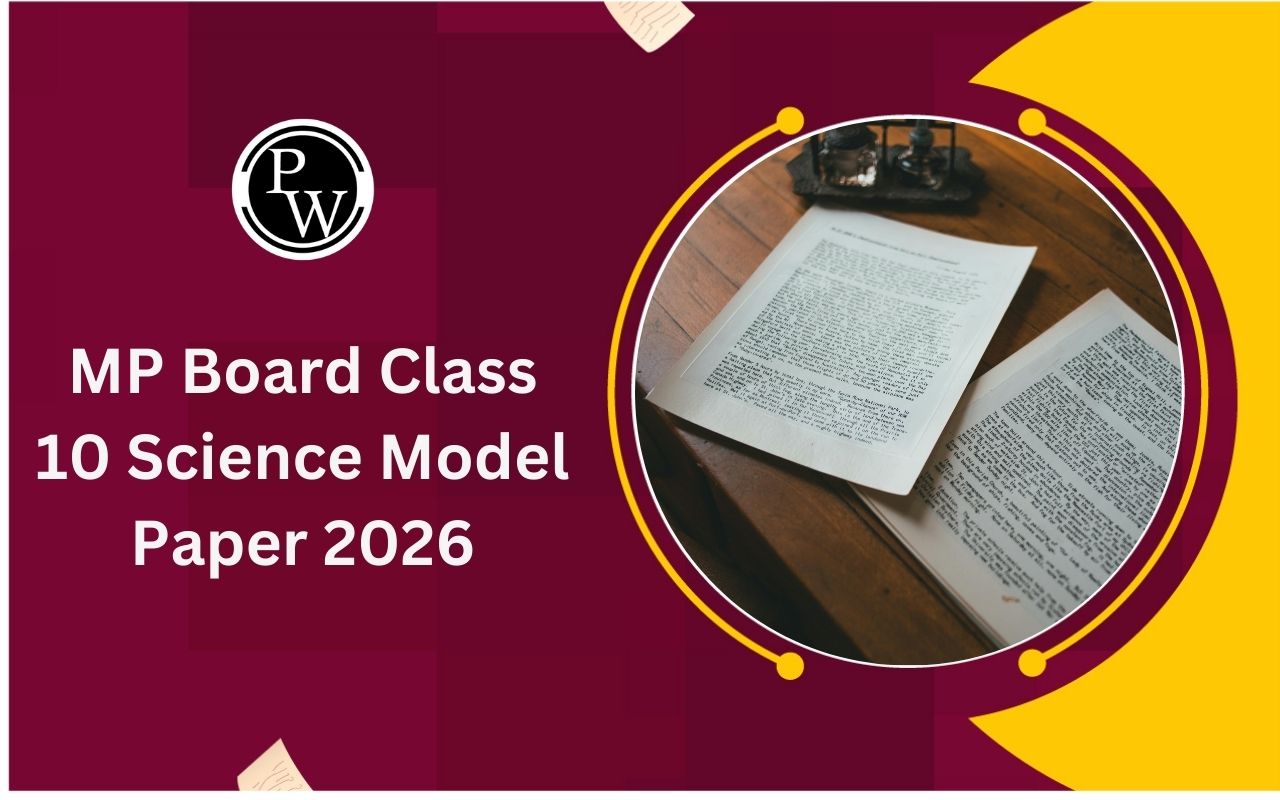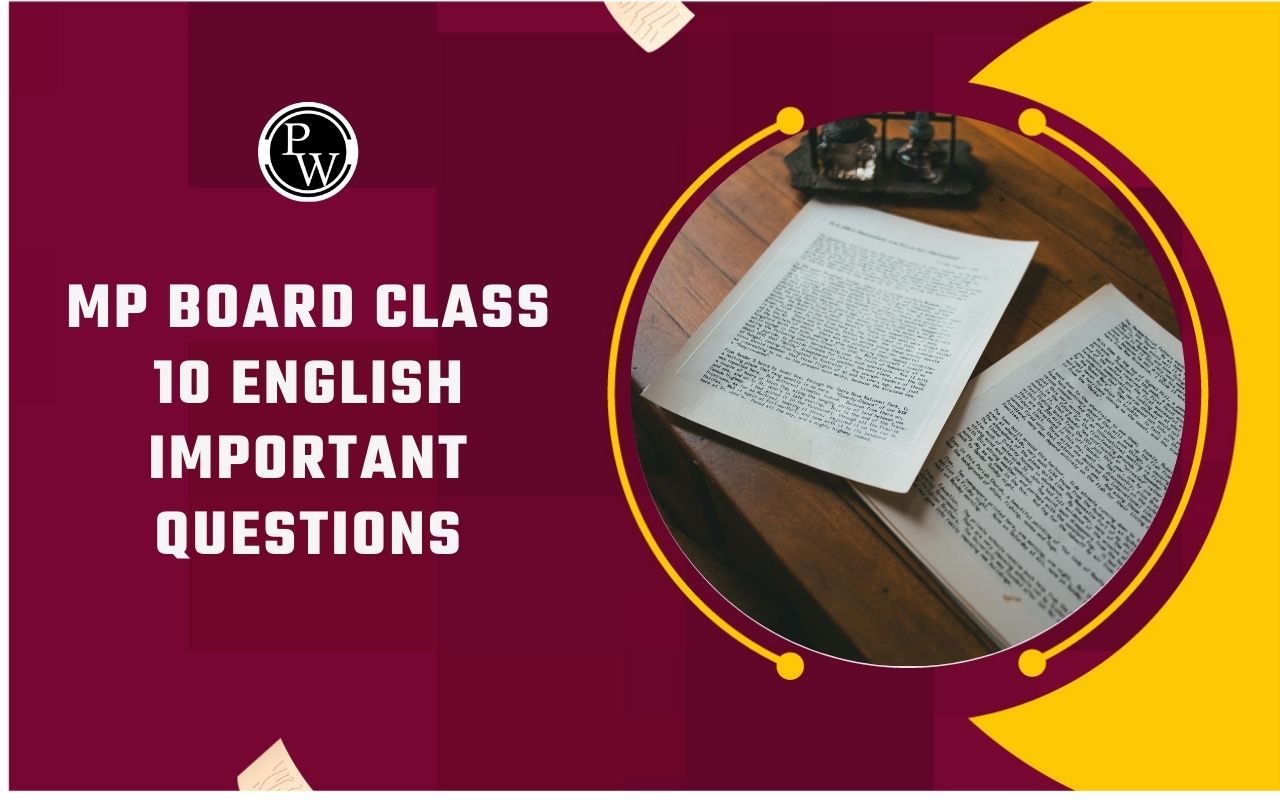
MP Board Class 12th History Syllabus: The MP Board Class 12th History syllabus covers key historical periods and themes, including Modern India, World History, and contemporary issues. The syllabus is designed to build analytical and critical thinking skills. The exam pattern includes objective, short answer, and long answer questions, reflecting the syllabus's comprehensive coverage.
Students are advised to thoroughly study the prescribed chapters and practice previous year papers to understand question trends and time management. Previous year papers help in identifying important topics and examiners’ expectations, aiding effective preparation. Overall, the syllabus and exam pattern ensure a balanced assessment of knowledge and understanding of History.
MP Board Class 12th History Syllabus
The MP Board Class 12th History syllabus includes important topics from Modern India and World History, focusing on detailed understanding and analysis. To prepare effectively, students should follow the exam pattern and practice previous year papers. For a clear and complete overview of the syllabus and exam details, please check the table below.
|
MP Board Class 12th History Syllabus |
||
|
Unit |
Unit Name |
Marks |
|
Themes in Indian History (Part-I) |
||
|
Unit 1 |
The Story of the First Cities: Harappan Archaeology |
30 |
|
Unit 2 |
Political and Economic History: How Inscriptions tell a story |
|
|
Unit 3 |
Social Histories: using Mahabharata |
|
|
Unit 4 |
History of Buddhism: Sanchi Stupa |
|
|
Themes In Indian History (Part- II) |
||
|
Unit 5 |
Medieval Society through Travellers’ Accounts |
32 |
|
Unit 6 |
Religious Histories: The Bhakti - Sufi Tradition |
|
|
Unit 7 |
New Architecture: Hampi |
|
|
Unit 8 |
Agrarian Relations: Ain-i-Akbari |
|
|
Unit 9 |
Mughal Court: Reconstruction Histories through Chronicles |
|
|
Themes in Indian History (Part - III) |
||
|
Unit 10 |
Colonialism and Rural Society: Evidence from Official Reports |
32 |
|
Unit 11 |
Representations of 1857 |
|
|
Unit 12 |
Colonialism and Indian Towns: Town Plans and Municipal Reports |
|
|
Unit 13 |
Mahatma Gandhi through Contemporary Eyes |
|
|
Unit 14 |
Partition through Oral Sources |
|
|
Unit 15 |
The Making of the Constitution |
|
|
Map work |
6 |
|
|
Total Marks |
100 |
|
Detailed Overview of MP Board Class 12th History Syllabus
Here is a detailed overview of the MP Board Class 12th History Syllabus with each unit:
Themes in Indian History (Part-I)
-
The Story of the First Cities: Harappan Archaeology
This unit explores the early urban civilization of the Indus Valley, focusing on archaeological discoveries, city planning, and the socio-economic life of the Harappan people. -
Political and Economic History: How Inscriptions Tell a Story
It examines how ancient inscriptions provide insights into political regimes, administration, and economic practices in early Indian history. -
Social Histories: Using Mahabharata
This unit analyzes social structures, roles, and cultural values by interpreting stories and characters from the Mahabharata, a significant ancient Indian epic. -
History of Buddhism: Sanchi Stupa
Focuses on the rise of Buddhism and the architectural and religious importance of the Sanchi Stupa as a symbol of Buddhist art and culture.
Themes in Indian History (Part-II)
-
Medieval Society through Travellers’ Accounts
Uses the writings of foreign travellers to understand medieval Indian society, including culture, economy, and social life during that period. -
Religious Histories: The Bhakti - Sufi Tradition
Explores devotional movements, highlighting the Bhakti and Sufi traditions that shaped religious thought and social cohesion in medieval India. -
New Architecture: Hampi
Studies the architectural marvels of Hampi, the Vijayanagara Empire's capital, showcasing its urban planning, temples, and monuments. -
Agrarian Relations: Ain-i-Akbari
Analyzes the agrarian economy and administrative details recorded in Ain-i-Akbari, a key Mughal document on land revenue and governance. -
Mughal Court: Reconstruction Histories through Chronicles
Examines Mughal history by studying court chronicles to reconstruct political events, cultural life, and courtly practices.
Themes in Indian History (Part-III)
-
Colonialism and Rural Society: Evidence from Official Reports
Investigates the impact of British colonial policies on rural India through official reports highlighting agrarian distress and social changes. -
Representations of 1857
Focuses on different perspectives and interpretations of the 1857 Revolt, examining its causes, course, and consequences. -
Colonialism and Indian Towns: Town Plans and Municipal Reports
Explores urban changes under colonial rule through town planning and municipal documents that reveal shifts in infrastructure and public health. -
Mahatma Gandhi through Contemporary Eyes
Presents views on Gandhi from his contemporaries to understand his leadership, ideology, and role in India’s freedom struggle. -
Partition through Oral Sources
Uses personal testimonies and oral histories to study the traumatic experience of Partition and its social and political impact. -
The Making of the Constitution
Discusses the formation of the Indian Constitution, its principles, debates, and the process that shaped modern India’s democratic framework.
Map Work
Covers geographical locations relevant to the historical topics studied, helping students visually connect events and places.
MP Board Class 12 History Project Work
This project explores key themes in Indian history, from ancient civilizations to modern times. It covers archaeological discoveries, medieval society, religious movements, colonial impact, and the freedom struggle. By studying inscriptions, travellers’ accounts, and oral histories, the project provides a comprehensive understanding of India’s rich and diverse historical journey. Map work enhances spatial knowledge of these events.
|
MP Board Class 12 History Project Work |
|
|
No. |
Topic |
|
1 |
The Indus Valley Civilization - Archeological Excavations and New Perspectives |
|
2 |
The History and Legacy of Mauryan Empire |
|
3 |
“Mahabharat” - The Great Epic of India |
|
4 |
The History and Culture of the Vedic period |
|
5 |
Buddha Charita |
|
6 |
A Comprehensive History of Jainism |
|
7 |
Bhakti Movement - Multiple interpretations and commentaries |
|
8 |
The Mystical Dimensions of Sufism |
|
9 |
Global legacy of Gandhian ideas |
|
10 |
The Architectural Culture of the Vijayanagar Empire |
|
11 |
Life of women in the Mughal rural society |
|
12 |
Comparative Analysis of the British-instituted Land Revenue Systems in India |
|
13 |
The Revolt of 1857: Its causes, organization, leadership, and unifying vision |
|
14 |
The Philosophy of Guru Nanak Dev |
|
15 |
The Vision of Kabir |
|
16 |
An insight into the Indian Constitution |
MP Board Class 12 History Exam Pattern
The MP Board Class 12 exam pattern for History includes theory, project, and internal assessment components, totaling 100 marks. The exam features objective, short answer, long answer, and map-based questions to evaluate comprehensive understanding. For a clear breakdown of marks distribution, question types, and exam duration, please check the table below.
Note: Here we have provided the basic exam pattern that is followed. But it is also advised to visit the official website.
|
MP Board Class 12 History Exam Pattern |
|
|
Component |
Details |
|
Total Marks |
100 |
|
Theory Marks |
80 |
|
Project/Internal Assessment |
20 |
|
Exam Duration |
3 Hours |
|
Number of Questions |
23 |
|
Question Types |
Objective, Short Answer, Long Answer, Map Work |
|
Marks per Question |
Objective: 1 mark each Short Answer: 2 marks each Long Answer: 3 & 4 marks each Map Work: 4 marks |
MP Board Class 12 History Syllabus PDF Download
For students preparing for the MP Board Class 12 History exam, having access to the official syllabus is crucial for effective study planning. To make your preparation easier, we have provided the complete MP Board 12th Syllabus for History in PDF format below.
This PDF includes all the important topics, exam patterns, and guidelines to help you understand the curriculum thoroughly. Download the PDF to stay organized and ensure you cover every essential part of the syllabus before your exams.
Download MP Board Class 12 History Syllabus
Study without using the internet
Preparation Tips for MP Board Class 12 History Exam
Here are some MP Board 12th preparation tips for the History exam:
Create a Timeline Chart: Visualize historical events in a timeline to understand cause-effect relationships and chronological order easily.
Focus on Themes, Not Just Facts: Try to grasp the underlying themes or reasons behind historical events instead of rote memorizing dates and names.
Use Mind Maps for Revision: Summarize each chapter using mind maps to connect key points, making recall faster during exams.
Practice Writing with a Time Limit: History answers require structured writing. Practice answering MP Board Class 12 Previous Year Question Papers within set time to improve speed and clarity.
Relate Past to Present: Link historical events to current issues or situations. This makes learning more interesting and helps retain concepts better.
Group Study for Discussions: Discuss difficult topics with peers to gain new perspectives and clarify doubts.
Use Previous Year Papers Smartly: Analyze patterns and frequently asked questions to prioritize important topics.
MP Board Class 12th History Syllabus FAQs
What topics are covered in the MP Board Class 12 History syllabus?
How many marks is the History exam for Class 12?
Is map work included in the History exam?
Where can I download the MP Board Class 12 History syllabus PDF?






